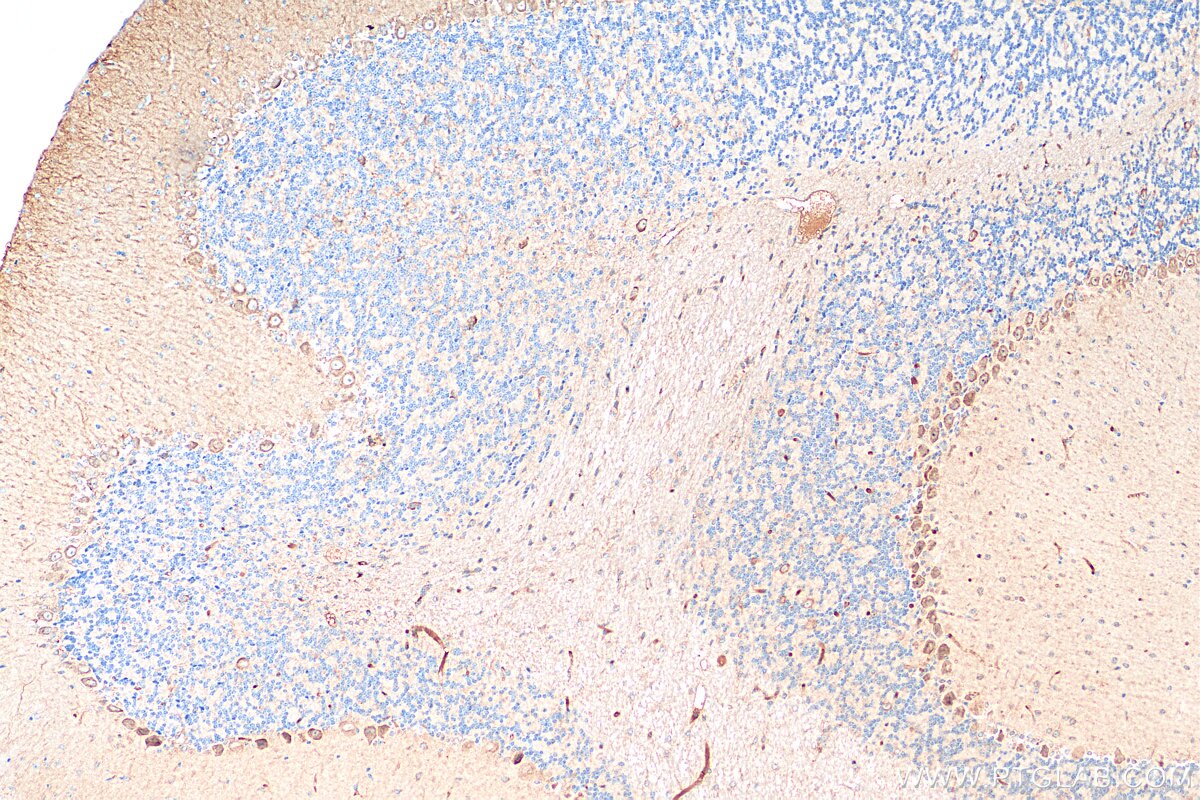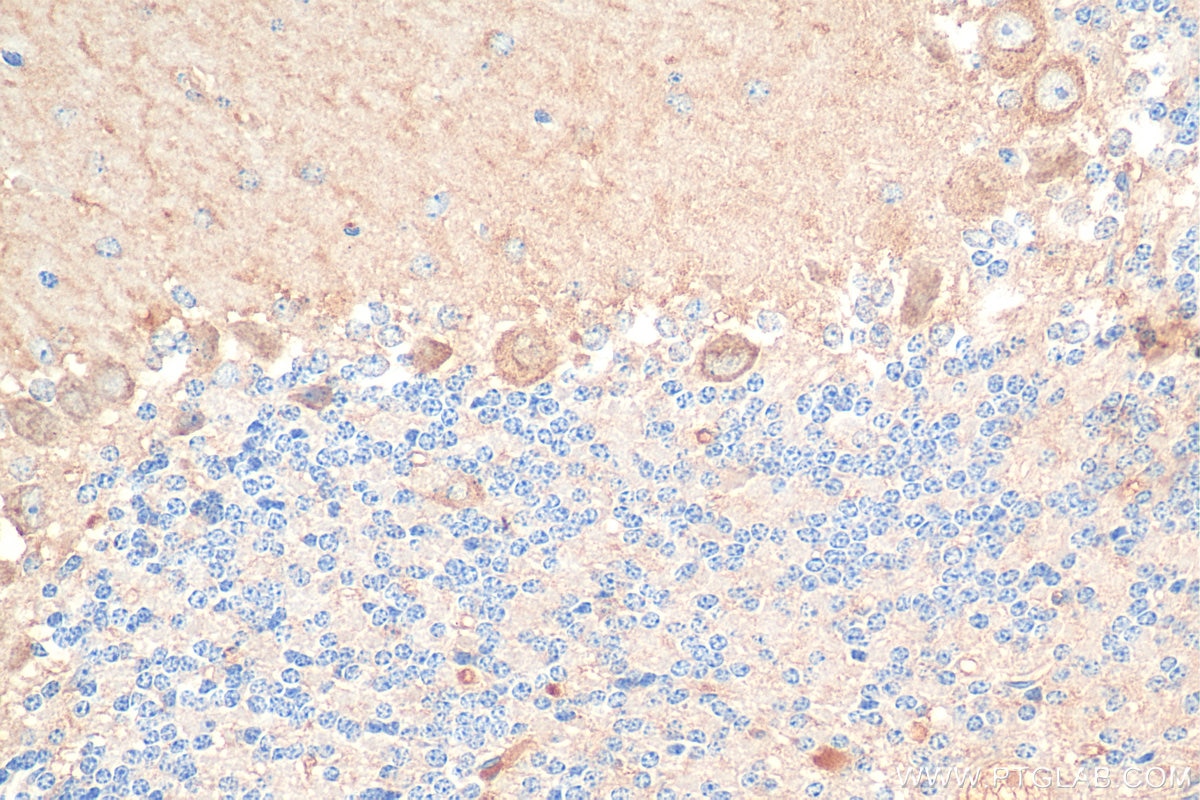Tested Applications
| Positive IHC detected in | mouse cerebellum tissue Note: suggested antigen retrieval with TE buffer pH 9.0; (*) Alternatively, antigen retrieval may be performed with citrate buffer pH 6.0 |
Recommended dilution
| Application | Dilution |
|---|---|
| Immunohistochemistry (IHC) | IHC : 1:500-1:2000 |
| It is recommended that this reagent should be titrated in each testing system to obtain optimal results. | |
| Sample-dependent, Check data in validation data gallery. | |
Published Applications
| WB | See 6 publications below |
| IHC | See 6 publications below |
Product Information
13943-1-AP targets SCNN1G in WB, IHC, ELISA applications and shows reactivity with human, mouse, rat samples.
| Tested Reactivity | human, mouse, rat |
| Cited Reactivity | human, mouse |
| Host / Isotype | Rabbit / IgG |
| Class | Polyclonal |
| Type | Antibody |
| Immunogen | SCNN1G fusion protein Ag5020 Predict reactive species |
| Full Name | sodium channel, nonvoltage-gated 1, gamma |
| Calculated Molecular Weight | 74 kDa |
| Observed Molecular Weight | 70-85 kDa |
| GenBank Accession Number | BC059391 |
| Gene Symbol | SCNN1G |
| Gene ID (NCBI) | 6340 |
| RRID | AB_2184510 |
| Conjugate | Unconjugated |
| Form | Liquid |
| Purification Method | Antigen affinity purification |
| UNIPROT ID | P51170 |
| Storage Buffer | PBS with 0.02% sodium azide and 50% glycerol , pH 7.3 |
| Storage Conditions | Store at -20°C. Stable for one year after shipment. Aliquoting is unnecessary for -20oC storage. 20ul sizes contain 0.1% BSA. |
Background Information
SCNN1G (sodium channel, nonvoltage-gated 1, gamma), also known as ENaC gamma (epithelial Na(+) channel subunit gamma) or amiloride-sensitive sodium channel subunit gamma, is the gamma subunit of the epithelial Na(+) channel (ENaC). ENaC is expressed in the apical membrane of salt-absorbing epithelia of kidney, distal colon, and lung. ENaC is a non-voltage gated, constitutively active channel highly selective for sodium. It has an essential role in salt and fluid homeostasis across epithelial tissues. Mutations in the gene of SCNN1G have been associated with Liddle syndrome. Native SCNN1G has a calculated molecular weight of 74 kDa and maybe undergo post-transcriptional modifications, including glycosylation and proteolytic cleavage (PMID: 12871941; 18086683).
Protocols
| Product Specific Protocols | |
|---|---|
| IHC protocol for SCNN1G antibody 13943-1-AP | Download protocol |
| Standard Protocols | |
|---|---|
| Click here to view our Standard Protocols |
Publications
| Species | Application | Title |
|---|---|---|
Hypertension Renal Natriuretic Peptide Receptor-C Deficiency Attenuates NaCl Cotransporter Activity in Angiotensin II-Induced Hypertension. | ||
Int J Mol Sci MST3 Involvement in Na+ and K+ Homeostasis with Increasing Dietary Potassium Intake. | ||
Endocr Relat Cancer Phosphodiesterase 2A and 3B variants are associated with primary aldosteronism. | ||
PLoS One Reduced Expression of Enac in Placenta Tissues of Patients with Severe Preeclampsia Is Related to Compromised Trophoblastic Cell Migration and Invasion during Pregnancy. | ||
Respir Physiol Neurobiol Contribution of concentration-sensitive sodium channels to the absorption of alveolar fluid in mice. | ||
Exp Anim Oxymatrine attenuates lipopolysaccharide-induced acute lung injury by activating the epithelial sodium channel and suppressing the JNK signaling pathway. |





